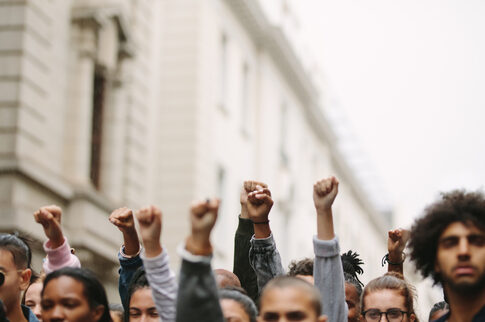In a significant move, the Democratic-controlled New York City Council approved a controversial package of bills aimed at addressing the long-standing impacts of slavery. The legislation, passed on Thursday, creates a task force to explore the city’s historical involvement in slavery and determine whether reparations should be made to descendants of enslaved people.
The bills, which passed with a vote of 41-8, outline the creation of a "truth, healing, and reconciliation" commission that will investigate New York’s role in perpetuating slavery and systemic racism. The commission is tasked with exploring both monetary and non-monetary reparations, which could include public apologies or memorials. Furthermore, the study will recommend eligibility criteria for any reparations to be paid out.
She essentially states the same gibberish line from the debate
We still have no idea what she means by an “Opportunity Economy” for all we know (and it likely is) an economy based on reperations and equity
Kamala has no planpic.twitter.com/pc7A6N6wf8
— Kyle Beaudette (@realkbeaudette) September 14, 2024
The proposal comes as part of a broader trend of reparations discussions across the country, with cities like San Francisco and Evanston, Illinois, already engaged in similar studies or actions. New York, which abolished slavery in 1827, still benefited from the slave trade through banks and financial institutions until the Civil War era. Supporters of the bill argue that the legacy of slavery continues to affect Black New Yorkers today, particularly in areas like housing, employment, and education.
Council Member Farah Louis, a key sponsor of the bill, emphasized the importance of acknowledging these historical wrongs. She stated, “The reparations movement is often misunderstood as merely a call for compensation,” pointing out that systemic racism, including redlining and environmental injustice, continues to have lasting effects on Black communities.
Kamala Harris dodges question about slavery reparations at black journalists’ conference: ‘These are facts that have impact’ https://t.co/HrDliikJ5g pic.twitter.com/K22zTutjne
— New York Post (@nypost) September 18, 2024
Mayor Eric Adams has shown support for the study, calling it a crucial step towards reconciliation and equity. If he signs the bill into law, the commission would be required to deliver its findings by 2027, coordinating with a similar statewide reparations commission established by Governor Kathy Hochul in 2023.
However, the legislation has faced strong opposition from some quarters. Republican Council Minority Leader Joseph Borelli voiced his staunch disapproval, saying, "I will never pay a dollar in New York taxes to repent for injustices neither I, nor anyone alive on earth right now, has committed.” Other Republican members, like Councilwoman Vickie Paladino, echoed these concerns, criticizing the bill as a misuse of taxpayer funds at a time when the city is grappling with more pressing issues like crime and homelessness.
Despite these objections, the reparations study has garnered significant support from civil rights groups and progressive activists. The New York Civil Liberties Union applauded the City Council’s decision, describing it as an essential step toward understanding the ongoing impact of slavery on Black New Yorkers and dismantling systemic inequalities.
The cost of the study is expected to be around $2.5 million, but no clear source of funding has been identified yet. Critics argue that the financial burden of such a project, along with the divisive nature of reparations discussions, may strain the city’s resources. Nevertheless, proponents believe the potential benefits of addressing historical injustices far outweigh the costs.

